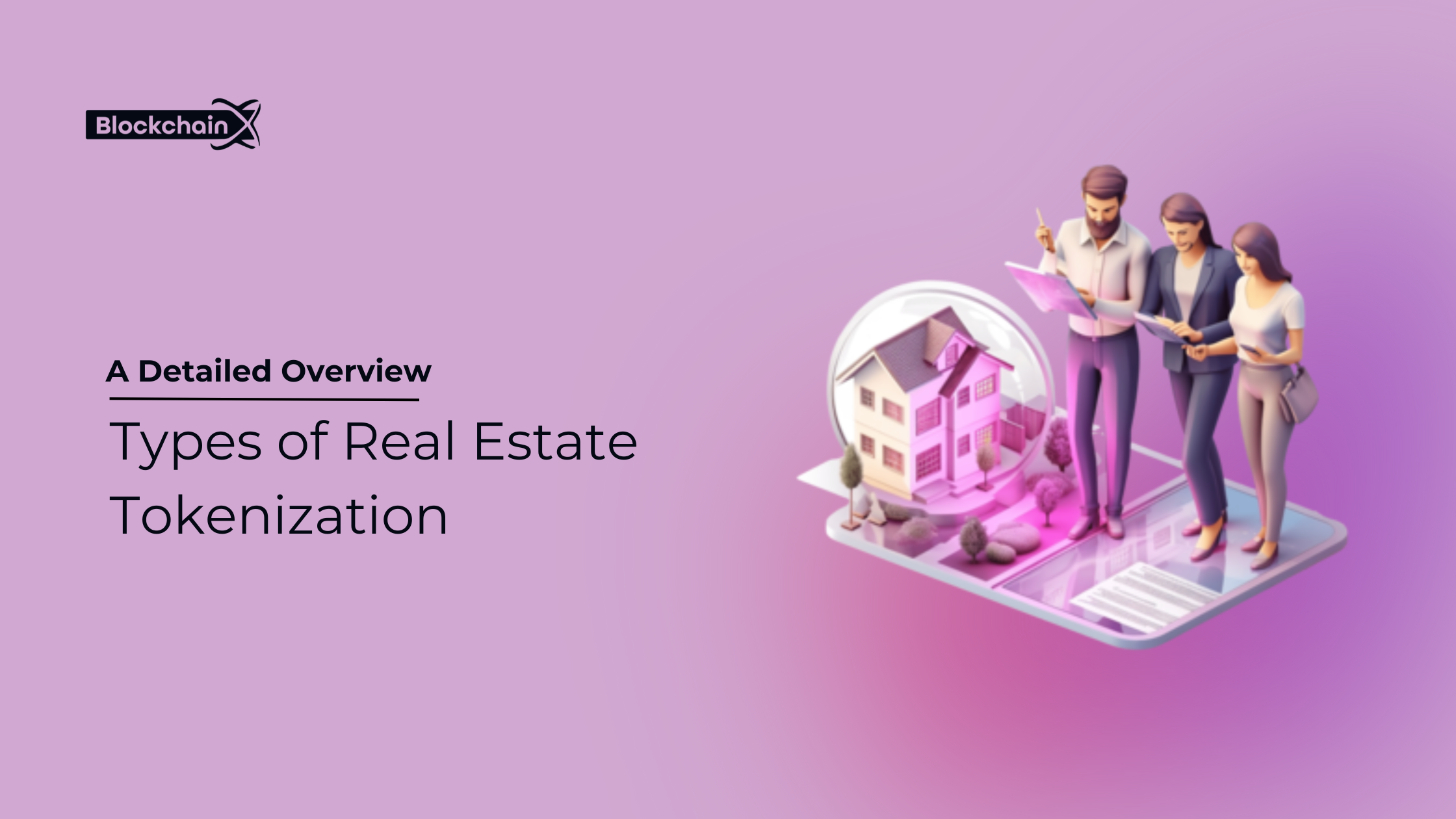Types of Real Estate Tokenization: A Detailed Overview

Strong 8k brings an ultra-HD IPTV experience to your living room and your pocket.
Tokenizing real estate is a revolution in the market: turning traditional property assets into intangible, immutable tokens on the blockchain. It makes it increasingly liquid, impenetrably accessible, and potentially opens the doors to fractional ownership. There are, however, different types of tokenization models, and each has its characteristics and benefits. In this blog, the major types of real estate tokenization, along with their structure, benefits, and real-world use, will be discussed.
What is Real estate tokenization?
It is the process by which ownership or investment rights in a property get converted into digital tokens on a blockchain. Each of these tokens is attached to an individual real-estate asset and can be purchased, sold, or exchanged through digital marketplaces. The key thought behind this mechanism is providing all investors with a flexible and transparent way to invest in real estate.
Transform your real estate assets into digital tokens and unlock new investment opportunities. Get started with BlockchainX Real estate tokenization services today!
Types of Real Estate Tokenization
Real estate tokenization can further be categorized into different types such as ownership structure, rights associated, and the functionality of the tokens. The major categories are:
1. Equity Tokenization
Equity tokenization is the creation of digital tokens that represent ownership in a property holding company or a real estate investment trust. The purchase of the tokens obliges the investor to or provides an opportunity to hold rights similar to those of a shareholder of the company, thereby owning proportionate shares of the property. Generally, a special purpose vehicle (SPV) organizes property under REIT ownership and issues the digital tokens as shares of this property. In simpler terms, the investor buys tokens and hence gains fractional ownership.
Fractional ownership offers the chance to own a stake in higher-valued real estate without having to raise large amounts of capital. Investors can also receive dividends from income generated from rents or income generated by investment property itself. Liquidity and marketability increase since equity tokens can be traded on secondary markets, thus opening up real estate investment avenues.
2. Debt Tokenization
The concept of debt tokenization is that instruments of real estate debt, such as mortgage loans or bonds, would be represented in the form of digital tokens. The investors act as lenders, providing funds to property owners in return for fixed returns in the form of interest payments, which the property owner then tokenises or digitalizes against the mortgage or real estate debt. The primary premise is that investors would purchase the tokens from the property owner or real estate source, basically lending money to the property owner with an agreement to receive payments of interest periodically as per conditions stipulated in the lending contract.
Thus, the model is applicable if an investor provides passive income in terms of interest earned, adds some security through real estate-backed security, and diversification. Debt tokens do not confer any ownership rights like equity tokens do; instead, they provide steady returns, thus making them a tempting option for investors looking to avoid risk.
3. Revenue-Sharing Tokenization
The revenue-sharing tokenization permits an investor to receive a portion of revenue generated from the real estate assets such as rental income, without ownership rights. A property owner or developer tokenizes the future revenue of a property, and then investors purchase those tokens thereby entitling such an investor to proportional shares of revenue-generated income. Returns depend on the performance of the property and its rental income.
Without being an owner of property, this means a steady cash flow with little maintenance, lower risk when investing, as returns would be based on revenue instead of price appreciation and very flexible investing alternatives for those who desire an income-oriented approach to investment. For instance, a shopping mall generating rental revenue distributes some of that revenue to the token holders so that they continuously receive an income stream from it.
4. Hybrid Tokenization
Hybrid provides the features of both equity model and debt model, enabling investors to have ownership rights and also earn passive income through a method referred to as interest revenue-sharing. Some portion of the token represents equity while some are attached with debt instruments or revenue-sharing agreements. Investors can adopt varied investment strategies based on the risk tolerance and financial objectives.
The whole model would bring along subscription options for such investment , so that it could help long-term value appreciation with increased stability income streams. Risks can also be lowered with diversification of exposure using several tokenization models. And then, wider market appeal should ensure both growth-focused and income-seeking investors will get value within a common asset.
Choosing the Right Tokenization Model
Each type of real estate tokenization has its benefits and fits different kinds of investors. Equity tokenization is one ideal for investors who are looking forward to price appreciation over a longer term, while those interested in debt tokenization are given fixed returns for lower risks. Revenue-sharing tokenization is for investors who prefer regular and consistent means of cash flow, while hybrid tokenization is for those wanting both ownership and income generation. It is very important to understand these investors' specific investment purposes, risk tolerances, and liquidity needs to arrive at the most suitable model.
Conclusion
Each type of real estate tokenization has its benefits and fits different kinds of investors. Equity tokenization is one ideal for investors who are looking forward to price appreciation over a longer term, while those interested in debt tokenization are given fixed returns for lower risks. Revenue-sharing tokenization is for investors who prefer regular and consistent means of cash flow, while hybrid tokenization is for those wanting both ownership and income generation. It is very important to understand these investors' specific investment purposes, risk tolerances, and liquidity needs to arrive at the most suitable model.
Note: IndiBlogHub features both user-submitted and editorial content. We do not verify third-party contributions. Read our Disclaimer and Privacy Policyfor details.


